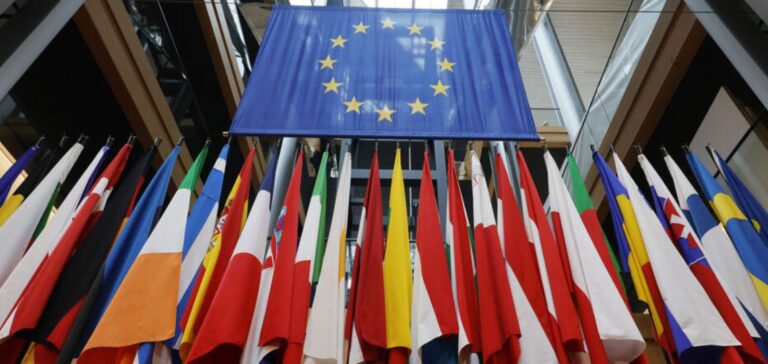The importance of the European Green Pact as a lever for economic competitiveness is highlighted by over 450 cross-sectoral organizations, who are calling on EU leaders to reaffirm their commitment to this strategic program. Ahead of the forthcoming European summit, these organizations, representing various economic sectors such as chemicals, services, renewable energies, shipping and consumer goods, have joined forces to stress the importance of the Green Pact for sustainable economic growth.
A Unified Call for Competitiveness
The signatories insist on the need to confirm the Green Pact as a strategic priority for the EU. They advocate the integration of a sustainable industrial pact, aligned with the objectives of the Green Pact, to stimulate innovation and competitiveness. It is also crucial to align all EU financial instruments with these objectives, to ensure coherent and effective investment. Walburga Hemetsberger, CEO of SolarPower Europe, emphasizes:
“Implementing the European Green Pact is a prerequisite for strengthening the EU’s competitiveness and is essential to achieving an Industrial Deal for Europe. The time has come to modernize the European economy.”
Aligning Financial Instruments for Growth
The appeal highlights the need to support cities and regions in their economic transition. The proposal to appoint an executive vice-president for the Green Pact and the Industrial Pact is designed to ensure the effectiveness of competitiveness and decarbonization strategies. Eric ScoIo, CEO of Akuo, states:
“The European Green Pact is the path to growth for Europe, strengthening our energy independence in the face of geopolitical risks.”
François Gemenne of the Hugo Observatory and IPCC member adds:
“It would be irresponsible to backtrack on the European Green Pact. Accelerating this program is vital to meeting current and future economic challenges.”
Essential modernization for the EU
Bertrand Piccard, Chairman of the Solar Impulse Foundation, notes that the integration of ecological solutions should not be seen as a constraint, but as a major economic opportunity.
“Strengthening our energy independence and competitiveness must be a priority for Europe.”
Claire Roumet, Executive Director of Energy Cities, argues that the Green Pact offers a structuring framework for affordable, sustainable energy, improving industrial competitiveness. William Todts, Executive Director of Transport & Environment, concludes:
“We need to relaunch the green deal to boost jobs, growth and energy security.”
These 450 organizations highlight the crucial importance of the European Green Pact for the EU’s economic future. European leaders are thus urged to take decisive action to confirm and strengthen this strategic commitment, which is essential to Europe’s competitiveness and economic security.





















